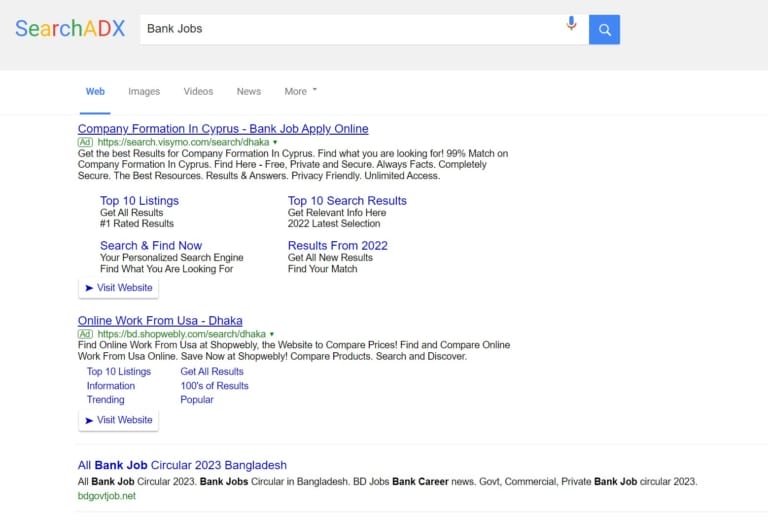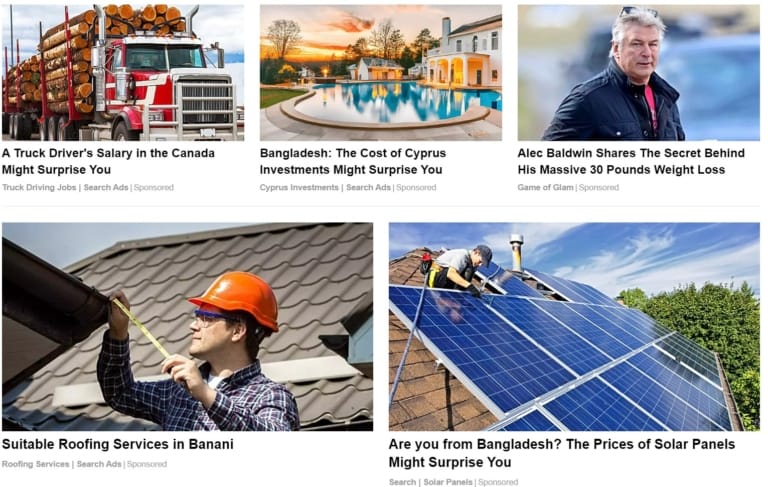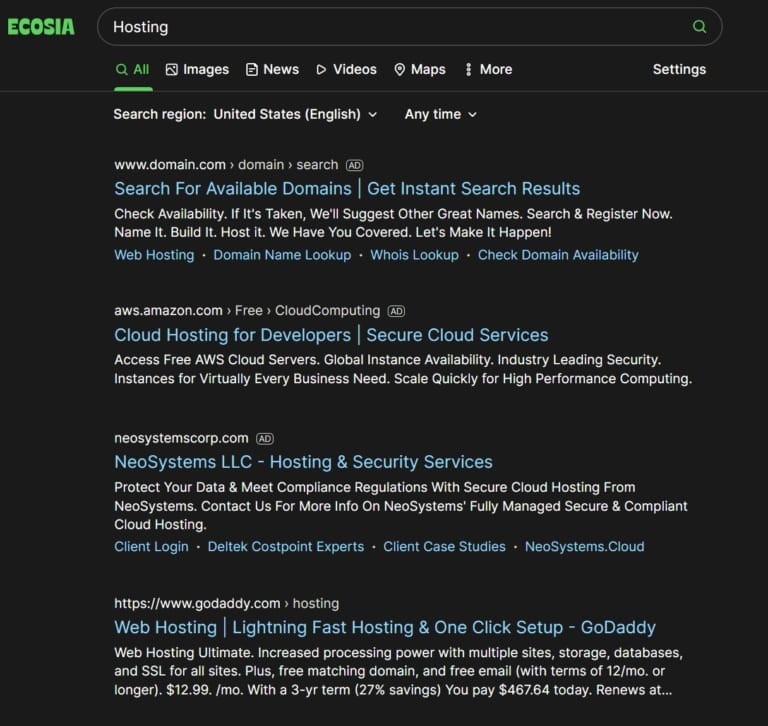
In the ever-evolving landscape of online advertising, search arbitrage has emerged as a powerful strategy for maximizing revenue. By capitalizing on the differences in pricing across various search engines, advertisers can buy traffic at a lower cost and redirect it to a destination where it can be monetized at a higher rate. This process, known as search arbitrage, has gained popularity as a means of generating passive income through pay-per-click (PPC) advertising.
In this comprehensive guide, we will delve into the world of search arbitrage, exploring its intricacies, benefits, and potential pitfalls. We will provide you with a step-by-step walkthrough of how search arbitrage works, the key players involved, and the strategies you can employ to unlock its full potential. So, let’s dive in and unlock the secrets of search arbitrage!
Understanding Search Arbitrage
What is Search Arbitrage?
Search arbitrage is essentially the process of buying traffic from one source, typically a search engine, at a lower cost and redirecting that traffic to another destination where it can be monetized at a higher rate. This arbitrage model primarily revolves around pay-per-click (PPC) advertising, which is the most common form of online advertising. When a user searches for a particular keyword or phrase, search engines display relevant ads alongside the search results. Advertisers bid on specific keywords, and when their ad is clicked, they pay the search engine a certain amount based on the CPC model.

The Role of Search Engines
Search engines play a crucial role in the search arbitrage ecosystem. They act as the primary source of traffic for advertisers looking to engage in search arbitrage. Popular search engines like Google, Bing, and Yahoo provide a platform for advertisers to bid on keywords and display their ads to users searching for related information. Advertisers can choose to target specific demographics, locations, or even time of day to optimize their campaigns and maximize their return on investment (ROI).
The Advertiser’s Perspective
From the advertiser’s perspective, search arbitrage offers a unique opportunity to generate revenue by leveraging the differences in pricing across search engines. By identifying keywords with low competition and relatively low cost-per-click (CPC) rates on one search engine, advertisers can redirect the traffic to another destination where they can monetize it at a higher rate. This destination can be a landing page, an affiliate offer, or any other form of monetization that aligns with the advertiser’s goals.
The Publisher’s Perspective
On the other side of the equation, publishers play a vital role in the search arbitrage ecosystem. Publishers are individuals or organizations that own websites, apps, or other platforms where ads can be displayed. They monetize their traffic by displaying ads provided by advertisers or through partnerships with ad networks. Publishers benefit from search arbitrage by receiving a share of the revenue generated from the ads displayed on their platforms.
The User Experience
One of the key considerations in search arbitrage is maintaining a positive user experience. Advertisers need to ensure that the ads they display are relevant to the user’s search query and provide value. By delivering high-quality ads that align with the user’s intent, advertisers can improve the overall user experience and increase the likelihood of engagement and conversions. It is essential to strike a balance between monetization and user satisfaction to create a sustainable search arbitrage strategy.
Getting Started with Search Arbitrage
Step 1: Keyword Research
Keyword research is a fundamental aspect of any successful search arbitrage campaign. It involves identifying keywords that have low competition and relatively low CPC rates on one search engine while having high monetization potential on another platform. Several tools and platforms can assist you in conducting keyword research, such as Google Keyword Planner, SEMrush, and Ahrefs. These tools provide insights into search volume, competition, and CPC rates for specific keywords, enabling you to make informed decisions about your search arbitrage campaigns.
Step 2: Selecting the Right Traffic Source
Choosing the right traffic source is crucial for the success of your search arbitrage endeavors. Popular search engines like Google, Bing, and Yahoo offer significant potential for traffic acquisition. Each search engine has its own unique features, demographics, and user behavior patterns, so it’s essential to conduct thorough research and analyze the performance of each platform before making a decision. Consider factors such as CPC rates, conversion rates, and the relevance of the traffic to your monetization strategy.
Step 3: Creating Compelling Ads
Crafting compelling ads is key to capturing the attention of users and driving engagement. Your ads should be relevant, concise, and compelling, with a clear call to action that encourages users to click through. Ad copy, headlines, and visuals should be optimized to resonate with your target audience and convey the value proposition of your offer. A/B testing can help you refine your ads and identify the most effective messaging and design elements.
Step 4: Building Landing Pages
Landing pages play a critical role in search arbitrage campaigns. They serve as the destination where users are redirected after clicking on your ads. Landing pages should be optimized for conversion, with clear and persuasive messaging, intuitive navigation, and compelling visuals. A well-designed landing page can significantly impact the success of your search arbitrage campaigns by maximizing the number of conversions and ultimately increasing your revenue.
Step 5: Tracking and Optimization
Tracking and optimization are essential components of any search arbitrage strategy. By closely monitoring the performance of your campaigns, you can identify areas for improvement and make data-driven decisions to optimize your ROI. Tracking tools like Google Analytics, TheOptimizer, Voluum, or FunnelFlux can provide valuable insights into key metrics such as click-through rates (CTR), conversion rates, and revenue per click (RPC). Regularly analyze your data and make adjustments to your campaigns to maximize your profitability.
Advanced Strategies in Search Arbitrage
Multi-Geo Targeting
Expanding your search arbitrage campaigns to different geographic regions can unlock new opportunities for revenue growth. By targeting countries or regions with lower CPC rates or higher monetization potential, you can optimize your campaigns and improve your overall ROI. However, it is crucial to consider factors such as language, cultural differences, and user behavior patterns when expanding into new markets. Localizing your ads and landing pages can significantly enhance your chances of success in multi-geo targeting.
Split-Testing Offers and Verticals
Split-testing offers and verticals is a strategy that can help you identify the most profitable combinations of keywords, ads, and landing pages. By testing different offers and verticals within the same search arbitrage campaign, you can gather valuable data on conversion rates, RPC, and overall profitability. This data-driven approach allows you to make informed decisions about which offers and verticals to prioritize and optimize for maximum revenue.
Automation and API-Based Optimization
Automation is becoming increasingly important in search arbitrage. API-based optimization tools like TheOptimizer Native can help streamline your campaign management process, allowing you to automate tasks such as bid adjustments, budget allocation, and performance tracking. By leveraging automation, you can save time, improve efficiency, and focus on strategic decision-making to maximize the profitability of your search arbitrage campaigns.
Best Practices and Considerations
Maintaining Compliance
Compliance is a crucial aspect of any search arbitrage strategy. Adhering to the policies and guidelines set forth by search engines and advertising platforms is essential to maintain a positive reputation and avoid penalties or account suspensions. Familiarize yourself with the terms of service of the platforms you are using and ensure that your campaigns comply with their guidelines. Regularly monitor your campaigns and make any necessary adjustments to maintain compliance.
User Experience and Relevance
Maintaining a positive user experience should be a top priority in search arbitrage. Ads should be relevant, non-intrusive, and provide value to the user. Landing pages should deliver on the promise made in the ad and provide a seamless and engaging experience. By prioritizing user experience and relevance, you can build trust with your audience and increase the likelihood of engagement and conversions.
Continuous Testing and Optimization
Search arbitrage is an ongoing process that requires continuous testing and optimization. Regularly test different ad variations, landing pages, offers, and traffic sources to identify what works best for your specific goals and target audience. Use data-driven insights to make informed decisions and optimize your campaigns for maximum profitability. The search arbitrage landscape is constantly evolving, so it’s crucial to stay up to date with industry trends and adapt your strategies accordingly.
Potential Pitfalls and Risks
Click Fraud and Invalid Traffic:
Click fraud and invalid traffic pose significant risks in the search arbitrage ecosystem. Click fraud refers to the fraudulent clicking of ads with the intention of inflating costs or generating revenue. Invalid traffic includes non-human traffic, accidental clicks, and other forms of traffic that do not provide genuine value. To mitigate these risks, it’s essential to implement robust fraud detection and prevention measures, closely monitor your campaigns for suspicious activity, and work with reputable traffic sources and ad networks.
Fluctuating CPC Rates:
CPC rates can fluctuate significantly in the search arbitrage landscape. Factors such as competition, seasonality, and economic conditions can impact CPC rates, affecting the profitability of your campaigns. It’s crucial to regularly monitor CPC rates, adjust your bidding strategies, and diversify your traffic sources to mitigate the impact of fluctuating rates. A diversified portfolio of campaigns can help spread the risk and ensure a more stable revenue stream.
Compliance and Legal Considerations:
Search arbitrage operates within a complex legal and regulatory framework. It’s essential to stay informed about the laws and regulations governing online advertising, data privacy, and consumer protection in the jurisdictions where you operate. Failure to comply with these regulations can result in significant legal and financial consequences. Engaging legal counsel and staying up to date with industry best practices can help you navigate these challenges and mitigate compliance risks.
Case Studies and Success Stories:
Case Study 1: Company X Maximizes Revenue with Search Arbitrage
Company X, an e-commerce business, successfully implemented a search arbitrage strategy to drive traffic to its website and increase sales. By identifying low-competition keywords on one search engine and redirecting the traffic to its optimized landing pages, Company X was able to generate a significant increase in conversions and revenue. Through continuous testing and optimization, they were able to refine their campaigns and achieve a higher return on investment.
Case Study 2: Publisher Y Monetizes Traffic with Search Arbitrage
Publisher Y, the owner of a popular website, leveraged search arbitrage to monetize its traffic and increase revenue. By partnering with reputable ad networks and displaying relevant ads on their website, Publisher Y was able to generate a steady stream of income from their search arbitrage campaigns. Through careful monitoring and optimization, they were able to maximize their revenue while maintaining a positive user experience.
Search arbitrage offers a compelling opportunity for advertisers and publishers to generate passive income by leveraging the differences in pricing across search engines. By carefully selecting keywords, optimizing ads and landing pages, and continuously testing and optimizing campaigns, you can unlock the full potential of search arbitrage. However, it’s important to consider the potential risks and challenges associated with search arbitrage and to maintain compliance with the policies and guidelines set forth by search engines and advertising platforms. With a strategic approach and a commitment to delivering a positive user experience, search arbitrage can be a powerful tool for revenue generation in the world of online advertising. So, take the plunge, explore the possibilities, and unlock the potential of search arbitrage for your business!
Exploring the Power of Search Feed Monetization
FAQ About Search Arbitrage:
1. What is Search Arbitrage?
Answer: Search Arbitrage is a digital marketing strategy where you buy traffic at a lower cost through search engine advertising and direct that traffic to a website where you earn money through higher-paying ads.
2. How Does Search Arbitrage Work?
Answer: Search Arbitrage involves purchasing low-cost keywords from search engines like Google and directing users to a landing page filled with higher-paying ads. The revenue generated from these ads should ideally be higher than the cost of purchasing the keywords, resulting in profit.
3. Is Search Arbitrage Legal?
Answer: Yes, Search Arbitrage is generally considered legal but it must comply with the terms and conditions of the advertising platforms being used. Violating these could result in penalties or bans.
4. Can Anyone Do Search Arbitrage?
Answer: Technically, yes. However, a successful Search Arbitrage campaign requires expertise in digital marketing, an understanding of keyword analysis, and a good grasp of advertising platform policies.
5. What Platforms are Commonly Used for Search Arbitrage?
Answer: Google AdWords and Bing Ads are the most commonly used platforms for sourcing low-cost keywords, while ad networks like Google AdSense are popular for higher-paying ads.
6. What Risks Are Involved in Search Arbitrage?
Answer: Risks include the potential for financial loss, violation of platform policies, and a possible negative user experience which can harm reputation.
7. Is Search Arbitrage Ethical?
Answer: The ethicality of Search Arbitrage is a subject of debate. While it is legal, some argue that it can lead to a poor user experience by redirecting users through multiple ads.
8. How Do I Start a Search Arbitrage Campaign?
Answer: Research and identify low-cost keywords, set up an advertising account, create landing pages with higher-paying ads, and continually monitor and adjust your campaign for optimization.
9. What Skills Do I Need for Search Arbitrage?
Answer: Keyword research, data analysis, and a good understanding of SEO and PPC advertising are essential skills for successful Search Arbitrage.
10. How Do I Optimize My Search Arbitrage Campaign?
Answer: Regularly analyzing metrics, refining your keyword list, and A/B testing your landing pages are crucial steps for optimizing your Search Arbitrage campaign.
11. Are There Tools to Help with Search Arbitrage?
Answer: Yes, tools like Google Analytics, SEMrush, and various A/B testing tools can help you monitor and optimize your campaign.
12. What is the ROI of Search Arbitrage?
Answer: The ROI can vary greatly depending on the effectiveness of your campaign strategy, keyword selection, and the ad platforms you’re using.
13. Can Search Arbitrage be Automated?
Answer: To some extent, yes. Automated tools can assist in keyword bidding and data analysis, but a human touch is often needed for fine-tuning.
14. How Do Advertisers Feel About Search Arbitrage?
Answer: Opinions are mixed. While some advertisers see it as a legitimate form of digital marketing, others consider it to be a form of manipulation.
15. Is Search Arbitrage a Long-term Strategy?
Answer: Due to the ever-changing nature of ad rates and search engine algorithms, Search Arbitrage is generally considered to be a short to medium-term strategy.
16. What Metrics Should I Track in Search Arbitrage?
Answer: Click-through rates (CTR), cost-per-click (CPC), and conversion rates are some of the key metrics to monitor.
17. Can I Use Search Arbitrage for Any Type of Content?
Answer: Ideally, the content should be high-quality and relevant to the ads being displayed to improve user experience and ad performance.
18. Do I Need a Website for Search Arbitrage?
Answer: Yes, a well-optimized landing page or website is crucial for displaying higher-paying ads.
19. Can I Do Search Arbitrage on Mobile?
Answer: Yes, Search Arbitrage can be done on both desktop and mobile platforms, although the strategies may differ slightly.
20. How Does Search Arbitrage Affect SEO?
Answer: Poorly managed Search Arbitrage can lead to a negative user experience, which can indirectly harm your SEO rankings.
21. How Do I Choose Keywords for Search Arbitrage?
Answer: Keywords should be chosen based on their cost-effectiveness, relevance to the ads, and potential for high traffic.
22. Can Small Businesses Benefit from Search Arbitrage?
Answer: Small businesses can benefit if they have the expertise and resources to manage and optimize a campaign effectively.
23. How Do I Measure Success in Search Arbitrage?
Answer: Success is usually measured by the profit margin between the cost of the keywords and the revenue generated from the ads.
24. Is Search Arbitrage the Same as Ad Arbitrage?
Answer: No, ad arbitrage is a broader term that includes other forms of arbitrage, like display or social media arbitrage, while Search Arbitrage is specific to search engine advertising.
25. What are the Best Practices for Search Arbitrage?
Answer: Compliance with platform policies, continual optimization, and focus on providing a good user experience are considered best practices.
26. How Do Seasonal Trends Affect Search Arbitrage?
Answer: Seasonal trends can affect both the cost and profitability of keywords, requiring adjustments to your campaign strategy.
27. Is Search Arbitrage Scalable?
Answer: With the right tools and expertise, Search Arbitrage can be scaled, although it also increases the complexity and risks involved.
28. Can Search Arbitrage Be a Full-Time Job?
Answer: For those with the necessary skills and resources, Search Arbitrage can become a full-time endeavor, but it’s often started as a side project.
29. What is the Minimum Budget for Search Arbitrage?
Answer: There is no fixed minimum, but starting with a small budget for testing and gradually increasing it as you optimize can be a good approach.
30. Where Can I Learn More About Search Arbitrage?
Answer: There are various online courses, blogs, and forums dedicated to the subject. Industry conferences and webinars are also valuable resources for learning more about Search Arbitrage.
Maximizing Revenue with Native to Search Arbitrage: A Comprehensive Guide





